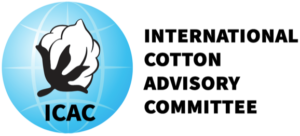
Given the urgency of the need to address climate change — and to educate people about how cotton can be part of the solution rather than the problem — the newest issue of the ICAC Recorder couldn’t have come at a better time. The free, 35-page publication contains a wealth of data, research findings, and insights from many of the top cotton researchers in the world.
It begins with an editorial from the Recorder’s editor, ICAC Chief Scientist Dr Keshav Kranthi, who estimates that over the last 62 years, humanity has introduced 219 billion tonnes of carbon into the atmosphere. Fortunately, he points out, the plant kingdom has the potential to capture 4 billion tonnes of carbon annually in its biomass — and cotton is especially effective at doing that because it uses carbon to grow its fibers, which are 97% cellulose.
The editorial is followed by nine feature articles:
- “Climate-smart Agronomy for Improved Soil Health and Biodiversity,” by Alexandra Perschau and Inka Sachse;
- “Impact of Climate Change on Global Cotton,” by Dr Michael Bange;
- “Climate-smart Cotton Production Technologies for Improved Yield,” by Dr YG Prasad;
- “Climate-smart Breeding of Cotton: Enhancing Resilience in the Face of Climate Change,” by Dr Marc Giband and Dr Keshav Kranthi;
- “Implementing Climate-resilient Innovations in Cotton Farms in Sub-Saharan Africa,” by Mahesh Ramakrishnan;
- “Implementing Climate-smart Agronomy,” by Dr Marcelo Paytas;
- “Regenerative Agriculture, ZBNF & Organic Cotton: Do They Combat Climate Change?,” by Rajeev Baruah;
- “Digitizing Carbon Farming: Empowering Smallholder Farmers through Carbon Markets,” by David Clark et al; and
- “Winner of the ICAC Researcher of the Year Award,” by Dr Michael Bange.
To read the free December 2023 ICAC Recorder, please click here.
